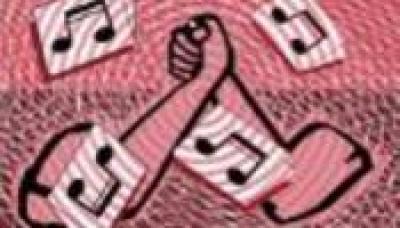

The regulator Ofcom has published a draft of its code of practice for tackling copyright infringement over the Internet, including a ‘three strikes’ rule, which could see persistent infringers being taken to court for illegal file-sharing. Ofcom said the code should come into force in early 2011.
Under the code, which puts into practice the terms of the Digital Economy Act, the IP address of anyone caught committing online copyright infringement three times will be added to a ‘blacklist’ held by their Internet service provider. Copyright holders, including music firms and film studios, will then be able to access the list and issue a court order to begin further legal action.
“It is imperative that a system that accuses people of illegal online activity is fair and clear,” Anna Bradley, chair of the Communications Consumer Panel, told the BBC.
According to the code, evidence is needed before any action is taken, and ISP customers have the right to appeal to an independent body.
The three accusations of illegal file-sharing do not have to come from the same source, but once three are made, any of the organisations can apply for a court order to reveal the perpetrator’s identity. ISPs will be required to keep a record of accusations for a year from when they are made, while rights holders must pass their evidence to ISPs within 10 days of it being gathered.
In its description of the three strikes rule, Ofcom’s code does not suggest that individuals’ Internet connections should be cut off as a punishment for file-sharing, as was previously suggested in the government’s Digital Economy Act. This clause has been one of the main sticking points for protesters against the Act, particularly among those who believe that Internet access should be a fundamental human right in the UK, as it is already in Estonia, France, Finland and Greece.
However, there are likely to be further obstacles to implementing the code, as protesters have also warned that the Act could mean the end of free public Wi-Fi – and potential problems for consumers running an unsecured Wi-Fi access point – as hotspot owners could be liable for any illegal activities carried out by their customers.
BT has criticised this oversight in the government’s plans to tackle illegal file-sharing in the past, warning that “the implications of the current proposals on a variety of businesses and activities have not been properly thought through”.
“It is clearly unfair that any site offering Wi-Fi, and any of their customers enjoying the service, should lose their access because of accusations against individual users,” added BT.
It is possible that Ofcom’s decision to initially exempt smaller ISPs – such as The Cloud – and mobile broadband operators was taken in order to give itself more time to resolve the problem of single IP addresses being shared between multiple users.
The practicalities of collecting data on illegal file-sharers could also prove problematic for Ofcom. While Virgin Media has publicly stated that it is trialing new technology from Detica that will allow it to monitor file-sharing over the Internet, other ISPs such as TalkTalk remain resistent to the proposal of spying on their customers.
American space agency prepares for testing of Boeing's Starliner, to ensure it has two space…
As UK and Europe develop closer military ties, European Commission says it will invest €1.3…
Zuckerberg seeks to revive Facebook's original spirit, as Meta launches Facebook Friends tab, so users…
Notable development for Meta, after appeal against 2021 WhatsApp privacy fine is backed by advisor…
First sign of shake-up under new CEO Lip-Bu Tan? Three Intel board members confirm they…
Trump's nominee for SEC Chairman, Paul Atkins, has pledged a “rational, coherent, and principled approach”…
View Comments
UK Gov seeks to criminalize all Net users to gain revenue
More untenable Laws from the’ UK Law Makers’ with the sole purpose it seems to criminalize everyone for the sake of collecting additional revenue streams.This maybe seen as a means of supplementing lost revenues from an ever-increasing Bankrupt proven incompetent Government.
Any private home or business could have someone download Copyright material illegally without the owner’s knowledge or consent. This ‘Daft Draft’ proposal yet again proves no one in Government seems to understand the basic rudimentary elements of the Internet.
If anyone should complain as to 'Copyright Infringement' it should perhaps be me. As after releasing the Formula for 'Worlds First Communications Platforms High Capacity Super Controller' under strictly controlled contracts to BT in 1995 I am informed it is allegedly being used under the name of A.N.P.D.S. in breach of agreements in the MoD. Link to proof document here: http://tinyurl.com/ycsgu49
Signed Carl Barron Chairman of agpcuk
http://carl-agpcuk.livejournal.com/
http://www.dorsetvisualguide.co.uk/